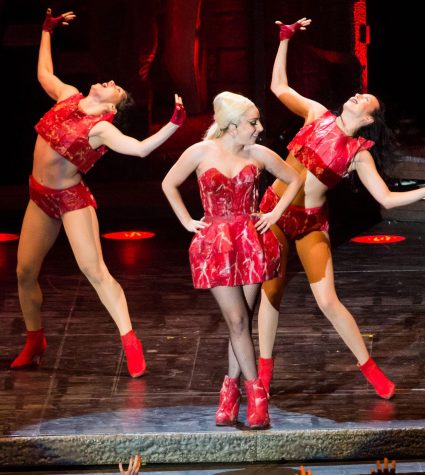A Pinch of Perception: The Dark Horse Genre
As I make a reaction video to another K-pop music video, my friends roll their eyes and look at me condescendingly.
To most of the Western world, K-pop is the genre that “no one can understand.” All Korean boy bands are “the Korean One Direction.” At best, K-pop is considered to be a carbon copy of American pop. At worst, the Hallyu Wave is a laughingstock. (“Hallyu Wave” is a term that portrays the global scale of K-pop.)
But standing behind the little galloping man with snazzy “Gangnam Style,” is an entire industry of boy bands flashing their “chocolate abs” and girl groups showing off their legs.
K-pop is an entire world in itself, albeit one that is confined to box-y sets. (SM Entertainment, I’m looking at you.) The spotlights, glitter and repetitive choruses that coexist with soft lighting, cashmere sweaters and acoustic remakes offer a sanctuary that can’t be found elsewhere.
Therefore, K-pop is a frustrating misnomer. There’s so much more to K-pop than the usual bubblegum pop that people expect. K-pop is an endless combination of genres: rock, hip-hop, ballads, reggae, dance – K-pop has it all. And there is just something comforting about a world with endless possibilities.
However, as with any society, K-pop has its dark side, too. The road to becoming a Hallyu leader is not easy. The life of a trainee is as regimented as that of a soldier. There are strict diets, performance lessons, language lessons and even etiquette lessons. All the while, these young adults lack the freedom that their peers take for granted. Trainees are taught to show a front of perfection, and their managers scold them for any slips. After all these hardships, there is still no guarantee that they will all become celebrities. And even after the elite of the elite debut, this hardcore schedule continues.
Despite such a rigorous lifestyle, I’d be lying if I said that I’ve never thought about joining the K-pop movement. I’ve auditioned, entered singing contests and even danced around on the streets in hopes of getting a talent scout to notice me.
Sure, the system has been called borderline inhumane, but the benefits outweigh the detriments. Giving up freedom that I can rarely even exercise for fame and fortune seems like a good deal to me. And there’s the added bonus of having other people, namely managers, ushering stars to keep up with their crazy schedules. With people to take care of everything else, all I’d have to do is focus on improving my yet-to-be-discovered performance skills.

INTERESTS/HOBBIES: Concert-going, book-reading, pun-saying, cover-making, prose-writing
EXTRACURRICULAR ACTIVITIES: GMG Regional Board (VP of...











dark horse violin sheet music • Mar 28, 2014 at 11:25 pm
Hey there! I could have sworn I’ve been to
this site before but after checking through some of the post I realized it’s new to me.
Anyhow, I’m definitely delighted I found it and I’ll be bookmarking and checking back often!